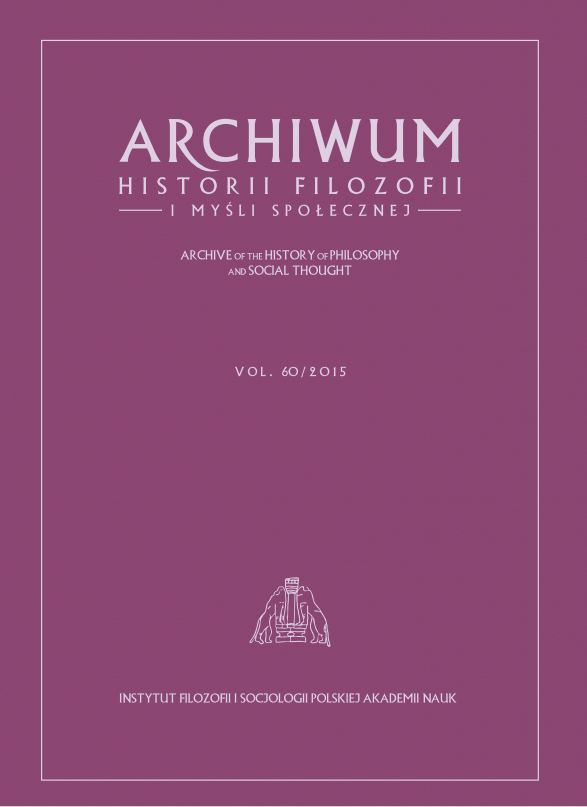Some Scholastic Terms of Marsilio Ficino’s Theory of Knowledge in the Platonic Theology
Some Scholastic Terms of Marsilio Ficino’s Theory of Knowledge in the Platonic Theology
Author(s): Joanna PapiernikSubject(s): Philosophy, History of Philosophy, Ancient Philosphy
Published by: Instytut Filozofii i Socjologii Polskiej Akademii Nauk
Keywords: Marsilio Ficino; St. Thomas; scholasticism; Neoplatonism; Renaissance philosophy; theory of knowledge; mononoism
Summary/Abstract: In numerous scientific studies of the different levels of generality, Marsilio Ficino, the fifteenth-century Florentine philosopher, is presented primarily as a Platonist or neo-Platonist, the first translator of all the works of Plato and of Plotinus from Greek into Latin, and the author of Theologia platonica de immortalitate animorum where he defends the immortality of the human soul in an encyclopedic manner. Ficino is also commonly referred to as a humanist and a popularizer of the hermetic thought. Relatively rare, however, researchers point to the other sources of Ficino’s philosophy, while the Aristotelian-scholastic tradition is not only well known to the Renaissance philosopher, but it also constitutes an important element of his conception, which is reflected on many of its levels, i. a. in the structure and terminology of his works. The main purpose of this article is to show some rudimentary aspects of the cognition process developed by Ficino’s in his Platonic Theology, with particular emphasis on the crucial terms used by the philosopher. The contents of this process resemble (at least in certain respects, not necessarily en bloc) the ones used in the Thomistic epistemological terminology or which directly refer to typical scholastic issues. The Ficinian process of cognition includes the activity of: senses, imagination, fantasy and mind. The function of imagination in the Florentine philosopher’s thought is the same as the one which Aquinas assigns to sensus communis, and imagination plays precisely the same role as vis cogitativa in St. Thomas theory of knowledge. When it comes to mind, it can be interpreted in a wide and narrow sense. In this first one, it is both reason, of which the distinctive feature is discursive reasoning, and the mind (in the narrow sense), of which the activity is contemplation. Describing the activity of reason and the mind in the narrow sense, Ficino also employs terms widely analyzed in the scholastic period, i. e. active intellect and possible (material) intellect, referring in this way to a dispute about mononoism, which was hotly debated in the second half of XIII century under the influence of the Averroean interpretation of Aristotelian De anima.
Journal: Archiwum Historii Filozofii i Myśli Społecznej
- Issue Year: 60/2015
- Issue No: 60
- Page Range: 101-118
- Page Count: 18
- Language: English

